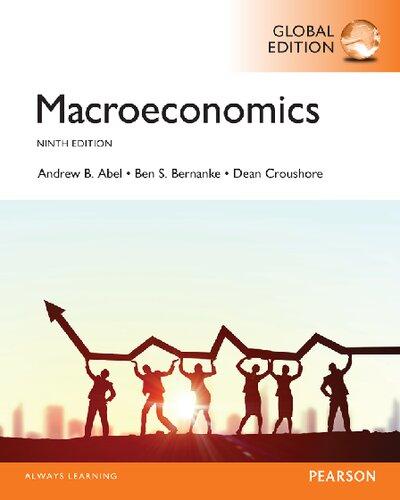In this problem you are asked to show that the expectations-augmented Phillips curve (derived in the text
Question:
In this problem you are asked to show that the expectations-augmented Phillips curve (derived in the text using the extended classical model) can be derived using the Keynesian model.
Consider a Keynesian economy in which full employment output is constant, and in which the nominal money supply has been growing at \(10 \%\) per year for some time and is expected to keep growing at that rate in the future. To avoid some technical complications, suppose that, instead of growing continuously over time, the money supply is increased by \(10 \%\) each December 31 and then held constant until the next December 31 . Monopolistically competitive firms reset their prices on December 31 of each year at the level that they expect will allow them to sell the full-employment level of output during the coming year. Inflation is measured as the percentage change in prices between January 1 and December 31 of each year.
a. Show how the \(A D\) curve, SRAS curve, output, the price level, and the expected price level evolve over time in this economy. What are the values of unanticipated inflation and cyclical unemployment?
b. Now suppose that on June 30, 2016, the money supply is unexpectedly raised by an additional \(5 \%\). However, the central bank announces-and firms believe-that this extra increase in the money supply is a one-time-only increase and that next December 31 the central bank will return to its policy of increasing the money supply by \(10 \%\). (Thus the total increase in the money supply between January 1, 2016, and December 31, 2016, is (approx.) 15\%.) Firms don't change prices until December 31, as usual, but when they do they respond fully to the new information about money supply growth.
What are the actual and unanticipated inflation rates during 2016? Is cyclical unemployment positive, negative, or zero (on average) during 2016? Relate your results to the expectations augmented Phillips curve.
Step by Step Answer:

Macroeconomics
ISBN: 9780134167398
9th Edition
Authors: Andrew B. Abel, Ben Bernanke, Dean Croushore





